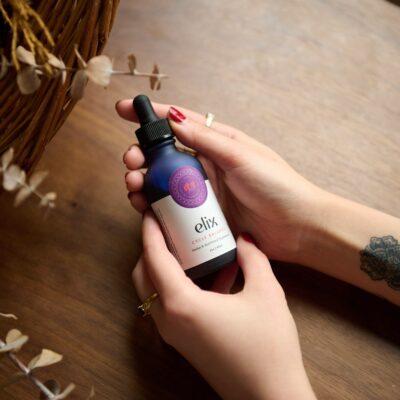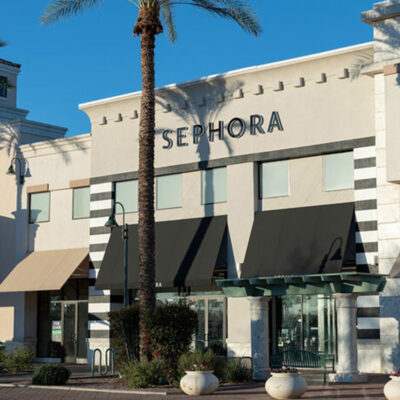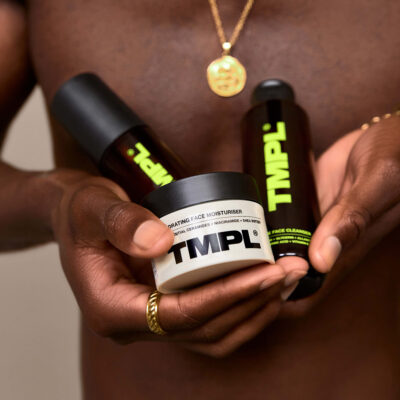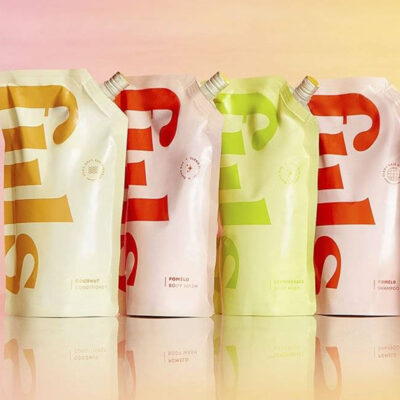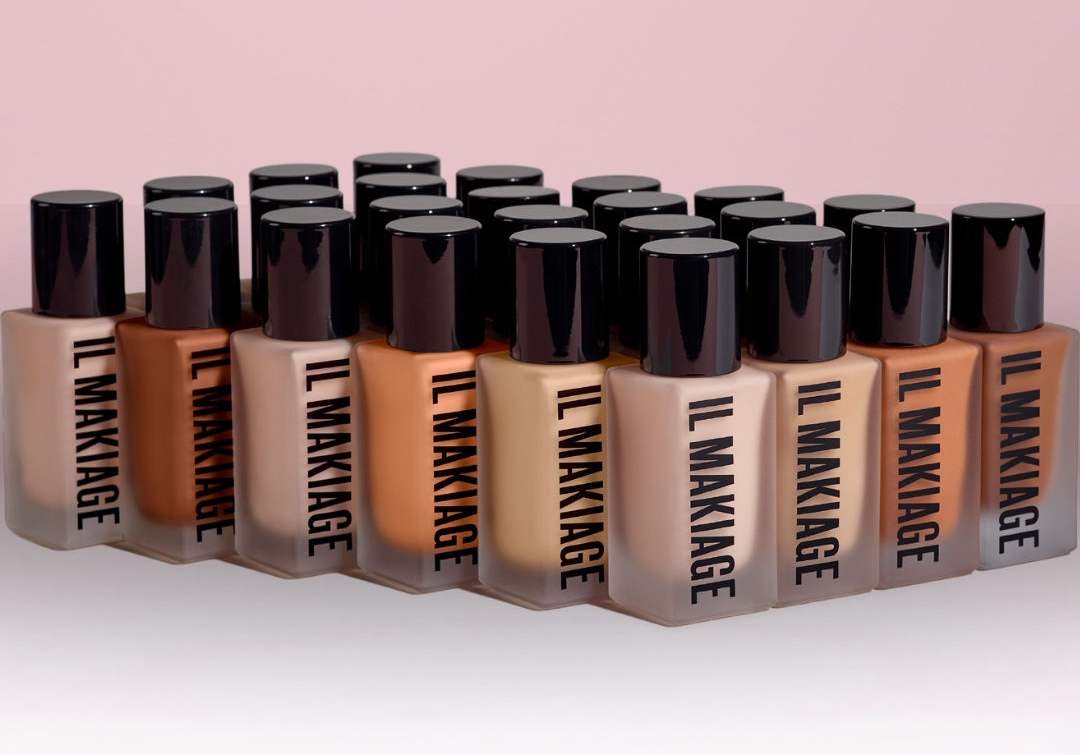
Is Oddity A Beauty, Tech Or DTC Company—And Does It Matter?
For a beauty company, Oddity is, as its name implies, a bit odd.
The 5-year-old owner of haircare and skincare brand SpoiledChild and makeup brand Il Makiage may not really be a beauty company at all, at least according to it. Oddity has billed itself as a consumer tech platform building digital-first brands. SpoiledChild features a proprietary machine learning engine that directs customers to the right products for them, and Il Makiage’s PowerMatch online shade-matching quiz has removed a barrier to e-commerce sales of complexion products.
In April, Oddity invested $100 million to scoop up Revela as artificial intelligence was whipping up a frenzy. Revela harnesses AI to discover molecules with beauty and wellness applications. Oddity also houses Kenzza, a beauty media content library, and Hyperspectral Vision, a computer vision specialist. The company boasts over 40 million unique users and 1 billion data points. In fiscal year 2022, Oddity generated $324.5 million in sales and $21.7 million in net income.
The company’s tech-forward positioning has been a hit with investors. Its initial public offering went off with a bang on Wednesday of last week to give it a roughly $2.7 billion valuation or a 33X multiple of its $81.62 million earnings before interest, taxes, depreciation and amortization (EBITDA). Now trading on the NASDAQ, its shares closed at $49.13 on Thursday, up from $47.53 on the day it IPO’d, which represented a 40% premium on the share price it had set.
While not quibbling that Oddity’s public market debut was impressive, some beauty industry insiders are quibbling with its pitch. They argue Oddity is very much a beauty company. In a tweet, for example, Kiva Dickinson, managing partner of Selva Ventures, backer of Crown Affair, Cake, One Skin, Kinship and Arrae, writes it’s a beauty company “trading at a beauty EBITDA multiple (L’Oreal 24x / Estée Lauder 30x)…Having data-informed product dev does not make you tech…Calling this a tech company is how we got in the DTC bubble in the first place.”
To get others’ takes on what Oddity is and isn’t, for the latest edition of our ongoing series posing questions relevant to indie beauty, we asked 12 beauty investors, investment bankers, entrepreneurs and executives the following questions: Do you think Oddity is a technology company, DTC company or beauty company? Does the answer matter for future beauty M&A and the strategies beauty companies are pursuing?
- Andrew Ross Senior Advisor and Venture Partner, XRC Labs
I think Oddity is a performance marketing company that sells beauty products. I don't think it is (yet) a beauty company. That is why all the strategics passed on acquiring them. There is no point of difference on the product or the brand versus what the strategics already have. I am happy to be proved wrong over time.
Oddity may have a point of difference in terms of their performance marketing capabilities—they are clearly doing something right to drive growth—but it is very clear from the consumer product reviews that no one is blown away by the quality of their formulations, nor are they generating organic brand love among consumers like say Bubble.
That's probably the big question for strategics here: Did they (I!) miss a capability acquisition versus a brand acquisition? And is that capability enough to drive sustainable profitable growth to allow Oddity to justify its valuation?
I have no doubt that everyone will be positioning themselves as AI-driven going forward to try to get a kicker on the multiple. We'll just have to see what capabilities actually matter and who actually has them.
- Tina Bou-Saba Co-Founder and Managing Partner, Verity Venture Partners
Markets always display a herd mentality. So, will tech-related beauty companies try to snap up other tech companies in an effort to replicate Oddity's model? Definitely! That's the way that these things work.
I think that the jury is still out on whether Oddity is a tech company or a beauty company. Every public company must always craft a clear narrative to help investors make sense of its business. This is especially important at IPO, when many investors are getting to know a company for the first time.
It is a critically important exercise, and I believe that Oddity's management has done a solid job of this so far. As someone who covered public companies for years, I have a deep appreciation for this exercise. Great management teams hammer investors over the head with the "story" of their company. All financial results, capital allocation decisions, M&A and so on must make sense as part of the company's narrative.
Of note, analyst commentary that I have read in the press has already differed in the degree to which it described Oddity as primarily a tech company or a beauty company. Thirty days after an IPO, sell-side analysts can publish their initiation reports. So, we will see those in a few weeks! I am very curious to see how Wall Street views Oddity.
- Rich Gersten Co-Founder and Managing Partner, True Beauty Ventures
Oddity is first and foremost a beauty company that sells through DTC channels and leverages technology to enhance the performance of their marketing strategies to be able to scale brands and achieve profitability on DTC channels easier than traditional beauty companies can. If it were to trade at a premium multiple to other beauty brands, it will do so given its growth trajectory and profitability profile.
Pure-play DTC brands generally do not achieve this level of profitability as it scales. Traditional beauty companies cannot easily scale a newly launched brand from scratch to $50 million in the initial launch year. In fact, traditional beauty conglomerates rarely launch their own brands, choosing instead to acquire brands as part of the growth strategy.
It would seem to me that Oddity, for future growth, can choose to acquire brands and leverage their technology to scale them in DTC channels or continue to just launch brands as they have done with Spoiled Child. It will be interesting to see if wholesale channels become part of the oddity growth playbook.
I do not think this matters for future beauty M&A as most companies/brands will not have similar technology capabilities. This is a unique beauty story, which is likely why the IPO was so well received.
At the end of the day, beauty companies will continue to acquire growth through traditional M&A strategies and leverage their scale, internal R&D capabilities and international distribution footprint to grow these acquired brands and improve margins. The DTC segment will always be important to acquirers, but beauty is an omnichannel category globally and will continue to be for the foreseeable future.
- Cristina Nuñez Co-Founder and General Partner, True Beauty Ventures
Oddity is a beauty company that has demonstrated a key tenet of success in the beauty industry, that is to clearly know and leverage the heck out of your unfair advantage. For Oddity, their unfair advantage specifically relates to their technology platform that allows them to make highly effective data-driven decisions to achieve profitable scale online.
They should be applauded for this achievement, but the past has also taught us two lessons: 1). DTC-only businesses in beauty fail to maintain that growth and profitability without an omnichannel approach, and 2). Brand, product innovation and efficacy trumps all and is how you keep beauty consumers in the long run. Only time will tell if Oddity navigates these learnings as a beauty company.
For the future of M&A, however, I do think this underscores the increasing importance of a brand having an unfair advantage or secret sauce, but this will be in addition to demonstrating the other tried-and-true characteristics for success in the beauty industry.
- Joel Palix Founder, Palix Unlimited
Oddity is a beauty company leveraging technology. Both beauty and tech categories can fetch high M&A multiples because both have two things in common: very lost cost of goods in proportion of revenues and large cash-rich strategics that can buy an existing business and make it way bigger.
Oddity’s IPO was a success because there are very few beauty businesses that truly understand tech and data. They do. Long term, all beauty brands will need to also be tech companies by blending good marketing with product innovation and data management.
- Jackie Dunklau Founder and Partner, Aria Growth
I think Oddity is a beauty company. I think their investment in technology has given them an edge on customer service, customer acquisition and product development, but, at the end of the day, none of that would matter without great beauty products.
It would be impossible for them to see the growth and profitability they’ve seen without high repeat purchase rates that only come from true customer affinity for their beauty products.
I don’t think whether Oddity is a beauty, tech or DTC company should matter for future M&A. I think brands succeed when they are laser focused on what customer unmet need they are addressing and what their unique competitive advantage is.
- Matt Rhodes Co-Founder and CFO, Foundry
It’s a fun debate—and the honest answer is a blend of all three, but, at the end of the day, I view them as a beauty company that leverages technology to sell via the DTC channel.
I agree with Kiva that beauty portfolios like L'Oréal are the appropriate comp set for Oddity given valuations should be driven by unit level economics, risk profile and expectations for growth.
At the end of the day, Oddity still buys and sells physical inventory (unlike tech), pays for fulfillment (unlike tech), and constantly must earn the loyalty from their end-customers (unlike at least traditional B2B SaaS tech).
Their explosive organic growth is a great case study for what disruptive beauty brands backed by innovative teams can do and provides a great validation point that the market will always reward disruptive brand portfolios that can profitably drive double digit growth.
It certainly aligns with Foundry’s strategy of the importance of investing in organic growth, leveraging data and always innovating to the provide the customer with new products and experiences.
- Kimberly Carney Founder and CEO, GlossWire
I think Oddity is a DTC retailer leveraging machine learning and AI to sell their own beauty brands/products directly to the consumer. It does matter for the future of beauty because delivering science-based knowledge and understanding of consumers' skincare requirements enabled by digitization continues to be an accelerator for the beauty industry.
The successful beauty companies of the future need to be strong in all dimensions. To be effective, AI requires deep application knowledge and continuous data from real consumers. At the same time AI and machine learning elevate the level of personalization based on multidimensional consumer data.
- Ariel Ohana Managing Partner, Ohana & Co
You are probably wondering whether Oddity Tech is a beauty company or a tech company because of its high valuation. Indeed, with a $2.7 billion market cap, the implied revenue and EBITDA multiples for the trailing 12 months are around 6.7X and 43X, respectively. That’s better than L’Oréal and Estée Lauder, whose EBITDA multiple is at around 25x.
So, you think, maybe only a tech company can command such multiples. Alphabet (Google) and Meta (Facebook) trade at around 17X/18X in EBITDA. Even Apple is “only” trading at 25X EBITDA. So, really, the valuation metrics for great beauty companies today are in line with the valuation metrics of leading tech companies.
These numbers show that beauty companies don’t need to claim to be tech companies to command high multiples. Investors love the beauty space for many reasons. It is showing strong growth and margin preservation despite inflationary concerns. During COVID, it was one of the most, if not the most, resilient consumer vertical. Growth, resilience in down cycles, margin preservation, this is the trifecta for any investor!
So, does Oddity’s IPO matter to the future of the beauty industry or beauty M&A? Frankly, I don’t think so. Even beauty M&A activity has been more resilient in this year’s overall slowdown in M&A activity.
The debate on Oddity’s positioning should not eclipse the company’s spectacular performance. And I am not talking simply about financial performance. At Ohana, we like to analyze the underlying operational data such as cohort behavior over time as it is almost certainly an early indicator of future financial performance, and the cohort data shared in Oddity’s prospectus is nothing short of stellar.
- Razvan Romanescu Co-Founder and CEO, Underlining
Oddity has a ton of similarities to Underlining, our beauty platform. We are moving onto brand four, and they are moving onto brand three. They have done some significant scale and rolled out omnichannel in a meaningful way.
1). I do not believe oddity is a tech company. They add very superficial easily accessible layers of technology on top of their acquisition funnel (quizzes, quick AI skin scan, etc., not too much technical customization or development).
2). I would consider them a beauty brand, not a DTC brand, as they have multiple channels outside of purely DTC. They employ an aggressive customer acquisition strategy, positioning themselves as an innovative beauty company leveraging technology and customization.
3). The tech they use is something that a lot of brands will layer on top of their acquisition strategy, quizzes, AI scans in the very near future. You are seeing this happen at scale with easy available plug and play tools that exist. This still does not make you a tech company. There may be a small window where you can layer on some basic tech and position yourself in a unique way to investors and customers, but that edge won’t last for long.
As we all have seen, DTC-only brands have had a rough patch during the recent few years finding venture and growth capital unless extremely profitable. An IPO at that valuation is a bit risky in my opinion, but most likely great for the founders/funds that are looking for liquidity that previously invested.
- Natalie Mackey Co-Founder and CEO, Winky Lux
The sky-high valuation of Oddity Beauty reflects less its “tech” label and more the enduring appeal of the beauty industry, particularly affordable luxury brands. This sector has traditionally been a refuge in economic turbulence, as my own experience with Winky Lux attests. Our color business has thrived this year due, in part, to the “lipstick index,” the tendency for consumers to indulge in small luxuries like lipstick, even in uncertain times.
That said, every truly great consumer brand is already tech-enabled. CRISPR, the revolutionary gene-editing technology, was discovered at a yogurt company for goodness’ sake. Wall Street continues to fetishize tech or tech-like investments, whatever that means, sometimes irrespective of core business fundamentals. Wild times indeed.
- Odile Roujol Founding Partner, Fab Co-Creation Studio Ventures
People who are the best in beauty for a long time are the ones caring for their customers and building long-term relationships.
I’m always cautious when companies, even with big valuations and figures that look good, use words such as “data,” “tech” and “beauty experts” when not showing they are deeply understanding the end users.
I may be wrong. Yes, computer vision and AI are needed, they are enablers. But I believe the future belongs to people fixing real problems, having access to relevant data.
Mergers and acquisitions will continue as corporations look for fab founders and authentically purpose-driven concepts.
If you have a question you’d like Beauty Independent to ask beauty investors, investment bankers, executives and entrepreneurs, please send it to editor@beautyindependent.com.

